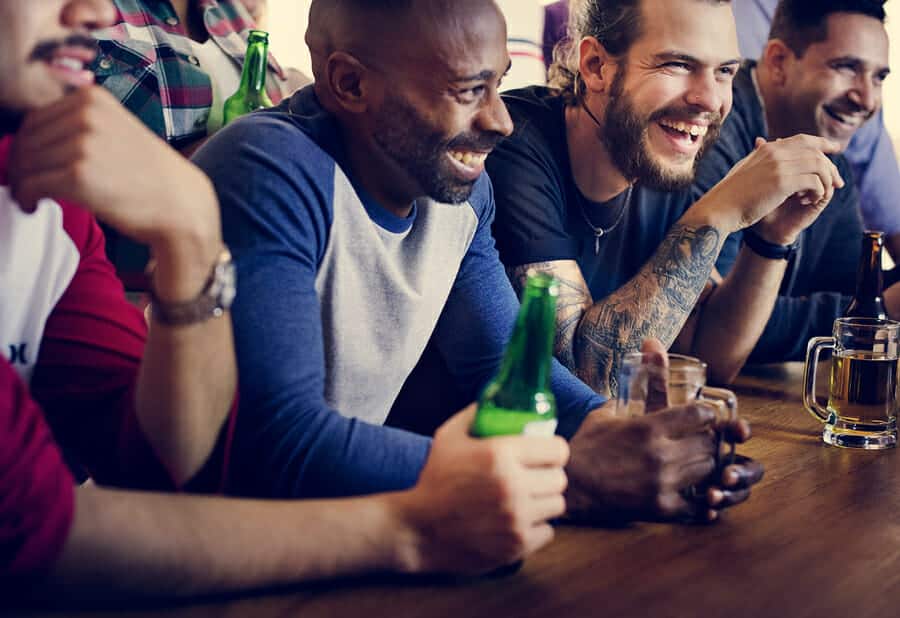You Don’t Have to Spoil the Fun with These Ways to Avoid Alcohol
As a first responder, you put your life and well-being on the line day in and day out. A single week could include fighting the roaring flames of house or forest fires, protecting your community’s businesses and residents from criminals or trying to keep civilians alive after accidents or overdoses.
You see and experience a lot on the job, which can take a toll on your own physical, emotional and mental health. That’s why it feels like drinking together with your colleagues while you cheer on your favorite sports team is one of the few simple pleasures you have left at the end of a long week.
You deserve it after all, right?
While kicking back and enjoying a cold one is normal, it’s vital that you keep your mind and reflexes sharp – for the sake of yourself, your colleagues and the people you protect. If you find yourself partying a little too hard after work more regularly, you can end up putting yourself and others at risk.
Are you worried you might be drinking too much? Saying “no” to alcohol occasionally or completely can feel a little awkward and alienating at first, so we’re here to give you some tips on how to stay engaged with your colleagues without putting yourself at risk for struggles with alcoholism.
Ways to Avoid Drinking Too Much While Watching Sports
This may sound like a no-brainer, but trying to limit the amount of time you spend in bars is one way to cut back on drinking. Maybe you and the crew can try getting together at a restaurant or at one of your homes instead. This gives you a chance to focus more on food and your friends and less time with alcohol being center stage.
Avoid drinking to cope with difficult emotions or traumatic experiences on the job. Try to keep a responsible amount of alcohol reserved for celebrating joyous occasions, instead. When you drink to take the pain away, it just comes back stronger.
You could also offer to be the designated driver. That gives you a perfectly valid and non-confrontational reason to limit your drinking for the evening, but it might not be a long-term solution.
Honesty is the Best Policy
Ultimately, if you’re trying to limit your alcohol intake or stop drinking altogether, you should consider being honest and open with your friends, supervisor and colleagues. While you might worry how they’ll respond, many first responders experience the benefits of being open and are encouraged to reach out to get help. View a first responders story here.
If you don’t want to admit to your crew that you think you have a drinking problem, try approaching the conversation by saying you’re limiting your alcohol intake to try to stay fit and healthy.
And remember, practice saying “no” in your head or in front of a mirror. Be confident. You deal with high pressure situations all the time on the job. You’ve got this!
Signs You Might Be Dependent on Alcohol
If you’ve tried cutting back or quitting already and found yourself drinking just as much or more than before, you might have an issue with alcoholism. Other warning signs to look for include:
- Intense cravings for a drink
- Loss of interest in maintaining relationships or enjoying hobbies
- Feeling the need to hide how much you’re drinking
When your body becomes dependent on alcohol to function, you may experience these and other withdrawal symptoms when you go without:
- Headaches
- Shaking or tremors
- Nausea and vomitting
- Seizures
- Hallucinations
- Fever and sweating
Help for First Responders Struggling with Alcoholism at Cycles of Change
Having trouble with alcohol abuse is not cause for shame. This isn’t a sign of weakness or something you chose. This doesn’t mean you’re any less of a first responder than the rest of your crew. Alcoholism is a serious illness that can be treated. You can recover and live a happier, healthier life.
At Cycles of Change, our team has extensive experience working with the first responder community. We partner with each of our clients on a personalized treatment plan to meet the needs of the individual. This is accomplished through a variety of therapeutic techniques, education, relapse prevention and other programs that can give you the tools you need to achieve and maintain sobriety.
Contact us today for a confidential conversation about alcoholism treatment customized for your needs.


